What’s the Meaning of Morocco Cutting Off Ties with Iran?
Seemingly out of nowhere, the international media has focused on the ordinarily uninteresting event of the North African Kingdom of Morocco cutting off ties with Iran, with the global attention given to this diplomatic decision meant to hype up the so-called “Hezbollah threat” and prompt Saudi Arabia’s other fellow coalition members in Africa to follow suit in distancing themselves from Tehran.
International media has inexplicably given seemingly disproportionate attention to the ordinarily uninteresting diplomatic event of Morocco severing ties with Iran, with almost all major outlets having reported on this story. According to the official narrative, Morocco accuses Iran of arming Polisario Front separatists in the disputed territory of Western Sahara with anti-air missiles via a Hezbollah branch in neighboring Algeria, with this conspiracy allegedly being managed through the Iranian Embassy in Algiers. All three primary parties – Iran, Hezbollah, and Algeria – deny any involvement in this supposed plot, but that hasn’t stopped the world from fantasizing about what they’ve been led to believe is an Iranian-linked “terrorist” operation in an “exotic” area of Africa.
The Confederation Of False Flag Allies
It’s impossible at this point to confirm or deny what the Moroccans are alleging because no evidence has been made public, but Hezbollah’s response in blaming the Kingdom for caving in to American, Israeli, and Saudi (“Cerberus”) pressure is telling because it reveals a lot about the geostrategic position that the country endeavors to play in the New Cold War. This context is crucial because it helps to better understand what might be going on with this curious case and why it was brought up at this particular time. One also can’t forget that the West has just accused Russia of carrying out a false flag chemical weapons attack against former agent Sergei Skripal in the UK and then asserted that President Assad did the same thing against his own people in Syria, so dramatic but unsubstantiated allegations are evidently a trend nowadays.
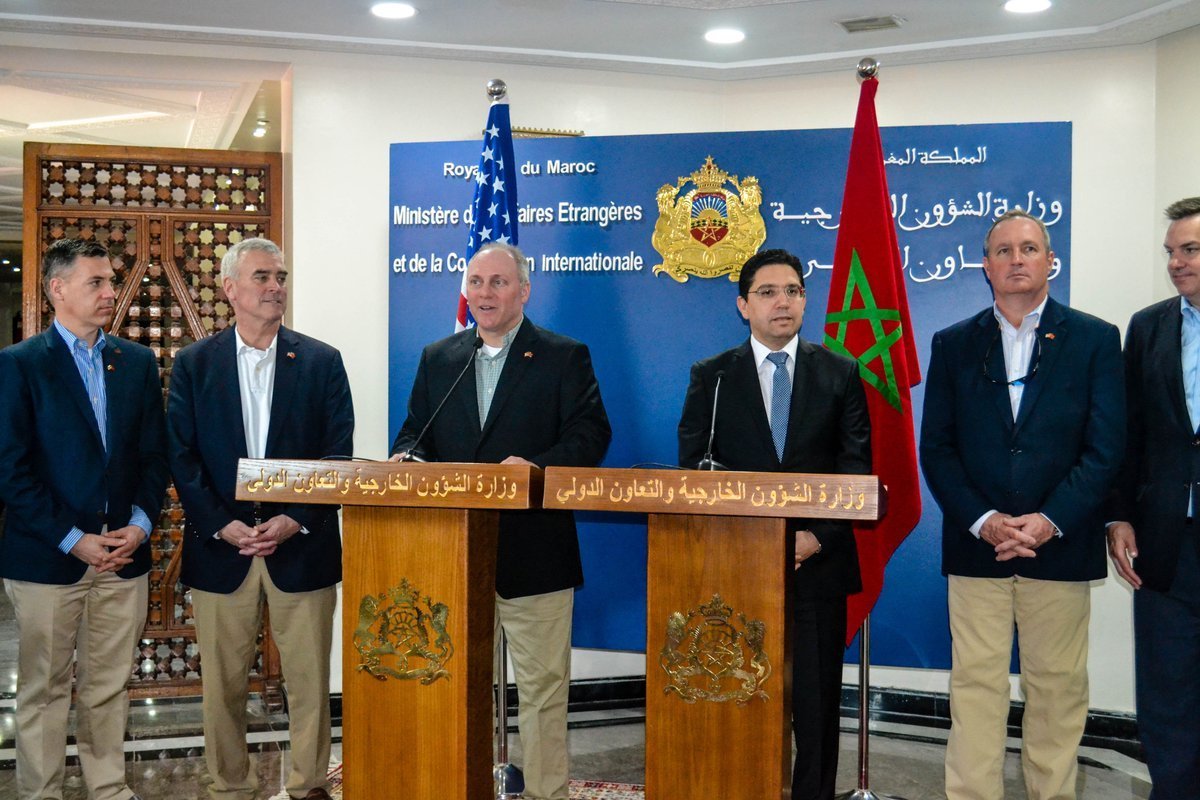
It’s unsurprising, then, that Morocco might have jumped on the bandwagon given its allied relations with the US via its “Major Non-NATO Ally” (MNNA) status and with Saudi Arabia through its membership in the Riyadh-led so-called “Islamic Military Counter Terrorism Coalition” (IMCTC). Although unofficial, it’s largely thought that Morocco also enjoys very close relations with Israel just like its Saudi and GCC partners do. Speaking of the latter organization, Morocco essentially functions as an informal member of what could be described as the GCC+, or the extra-Gulf expansion of this group to de-facto include Egypt, Eritrea, Jordan, and itself, with the latter two actually having been extended an official offer to join the bloc in 2011 despite no public progress having been made on that front since then.
The Quadri-Continental Hub
Concerning other regional integrational organizations, Morocco was readmitted to the African Union (AU) last year after being its “black sheep” for decades following the unilateral annexation of Western Sahara after the Spaniards’ 1975 withdrawal and the Kingdom’s subsequent exit from the group in 1984. Also last year, Morocco applied to join the “Economic Community Of West African States” (ECOWAS) despite not being geographically contiguous to any of its members, though an official decision on its bid was postponed until later this year due to heightened concerns that it could serve as a backdoor for EU goods to infiltrate into the free trade bloc as a result of its “Association Agreement” with Brussels. Truth be told, that might actually be what Morocco was planning all along, as one analyst noted that “[its] long-term goal is to become a trade and production hub that can interface between European, American, and Sub-Saharan African trading blocs.”
The argument put forth is that Morocco’s interlacing free trade agreements with the US and the EU could pair with its prospective ones with Mercosur and ECOWAS in turning it into a quadri-continental and bi-hemispheric trade and logistics hub linking together both halves of the Atlantic Ocean in the 21st century, a rather ambitious vision to be sure but one that’s nonetheless possible if everything goes according to plan. Paving the way for this to happen and in an effort to improve its international reputation, Morocco got the UNSC to approve a recent resolution that’s perceived to be in its favor, with even Russia begrudgingly going along with it by declining to veto the American-drafted text on the pragmatic basis that Moscow understands the importance of at least continuing the UN mission there.
Russia’s Regional Readjustment
On the topic of Russian-Moroccan relations, the two Cold War rivals are in the midst of an unlikely rapprochement that impressively extends the “balancing” influence of Moscow’s “progressive” “deep state” faction all the way west to North Africa’s Atlantic coastline. The Soviet Union used to support Algeria in its socialist ally’s territorial dispute with Morocco and also provided assistance to Algiers’ Polisario Front partners, but while relations are still very close between these two states, Moscow has decided to make inroads in rebuilding its relations with Rabat. To this end, the Moroccan King visited the Russian capital in 2016, and a year later the two parties signed military and security cooperation agreements as proof of the ever-expanding robustness of their rapprochement.
Algerian Anxiety
For all intents and purposes, Morocco is shaping up to become a major extra-regional “influencer” that’s courting a variety of parties to its distinct advantage, thus making it a sort of “trendsetter”, or at least that’s how its leaders and their closest international allies (US, Israel, and Saudi Arabia) want to frame it. It’s with this in mind that one can better understand the significance of the latest accusations against Iran and Hezbollah, as they’re clearly designed to set into motion a “domino effect” in having Morocco lead the way for Saudi Arabia’s other African military allies to follow suit. Not only that, but involving Algeria into the mix is supposed to put added pressure on the state as it slowly prepares for the sensitive post-Bouteflika era and the attendant “deep state” reconfigurations that this entails in the interests of national stability.
Morocco’s neighbor can anachronistically be described in hindsight as having been a “proto-Syria” because of the bloody Hybrid War that it suffered through during the 1990s in fighting against Islamic terrorists, an Unconventional Warfare model that would later be unleashed against its Levantine ally. About that, Algeria is one of the few Arab states to have retained positive relations with both Syria and Iran during this entire time, ergo another reason why it’s being targeted with international Saudi-led pressure during the run-up to Trump’s likely abandonment of the Iranian nuclear deal and consequent escalation of asymmetrical hostilities against Tehran. Correspondingly, there’s a certain “logic” to hyping up the “Hezbollah threat” because it reinforces the idea that the group is an “Iranian proxy”, one which supposedly has substantial geographic reach and is clandestinely operating with Algeria’s implied approval.
“Ayatollahs on the Atlantic”
Last year’s bombshell report about US’ Obama-era “Operation Cassandra” intelligence initiative claims that the group is heavily involved in drug and other criminal activities all across the US and Latin America, providing a potent infowar boost to Trump’s efforts to “defame” and then “isolate” Iran, irrespective of the veracity of these accusations. Similarly, Hezbollah – which in American and Mainstream Media parlance is synonymous with Iran – is now allegedly active in North Africa and attempting to aid a separatist movement on the Atlantic coast, which not coincidentally aligns with previous claims that Iran was militarily supporting Senegal’s Casamance separatists and planned to funnel weapons to them through The Gambia. The made-for-media fear mongering spectacle of “Ayatollahs on the Atlantic” is therefore already a tried-and-tested trope that’s merely being repeated in the present day.
The contemporary significance of remixing these claims in the Algerian-Western Saharan context is that it allows Iran’s enemies to fulfill multiple objectives at once. They’re able to remind the world about the so-called “Iranian and Hezbollah threats”, the latter iteration of which goes along with last year’s “Operation Cassandra” reporting, and they can also tie Tehran and Damascus’ Algerian ally into the narrative as well. This secondary accomplishment returns the Western Saharan conflict back into the news and allows Saudi Arabia to experiment via its Moroccan proxy with implementing advantageous “peace proposals” that could serve as a test run for rolling out the forthcoming American-Saudi “peace plan” for Palestine, which systemically mirrors the situation in Western Saharan given that an occupying entity is in complete military control of both territories despite the indigenous populations’ demands for democratic referenda on their fates.
Concluding Thoughts
The overarching geopolitical goals being advanced by bringing up accusations of Iranian-Hezbollah complicity in the Algerian-based Polisario Front’s insurgency at this particular time explain why there’s so much international media attention being given to this issue. Morocco is trying to present itself as a quadri-continental pivot state with the potential to become a regional trendsetter, hence why its decision to cut off ties with Iran is thought by the Saudis to be the first step in a forthcoming “chain reaction” of other African countries distancing themselves from the Islamic Republic too. That may or may not materialize, but the importance in this instance is the narrative that’s being propagated about Iran and Hezbollah, one which seeks to frame them as the Ummah’s “bogeymen” in the New Cold War following the pattern that was established with the communists in the Old Cold War.
Geographically expanding the scope of the so-called “Iranian and Hezbollah threats” to include the westernmost reaches of the Ummah is symbolically powerful and enables the Saudis to remind the global community of believers that they appointed themselves to lead about its rival’s purported perniciousness. This comes right at the moment when Trump is about to pull out of the 2015 nuclear deal and around the time when Resistance-friendly Algeria is preparing for its inevitable leadership transition at an undetermined point in what is presumed to be the near future, thus representing a valuable window of opportunity for Riyadh to marshal its African coalition allies in teaming up against Tehran and Algiers. On top of that, redirecting attention back to the long-dormant Western Saharan dispute precisely at the time when Morocco is trying to court international backing for its preferred solution could allow Rabat to blame Tehran if the rebels don’t go along with its plans, just like Tel Aviv can allege the same if the Palestinians don’t adhere to what the US and Saudi Arabia will soon be demanding of them too.
Therefore, the latest accusations being leveled against Iran for supposedly funneling anti-air weapons to the Polisario Front via Hezbollah’s Algerian branch are indeed important enough to warrant considerable international attention from the trilateral US-Israeli-Saudi (“Cerberus”) perspective, but it’s precisely for that reason why it’s so dangerous when it comes to the security interests of the three parties being blamed for this conspiracy. Nothing ever occurs in a complete vacuum in today’s interconnected world, much less whenever it purportedly has to do with Iran and deals with a narrative being advanced by the Mainstream Media, so the latest news frenzy must be seen in its proper geopolitical context in order to be fully understood as the most recent asymmetrical offense of the larger “containment” campaign that it’s intended to be.

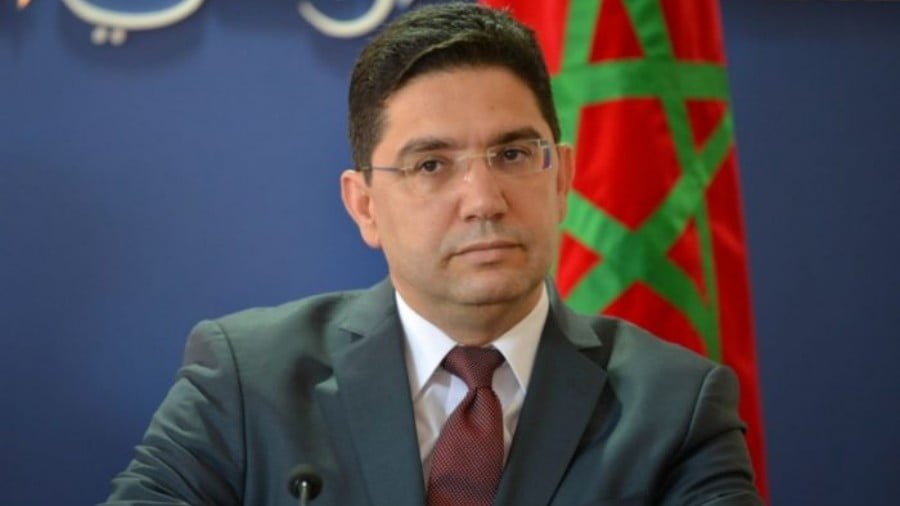
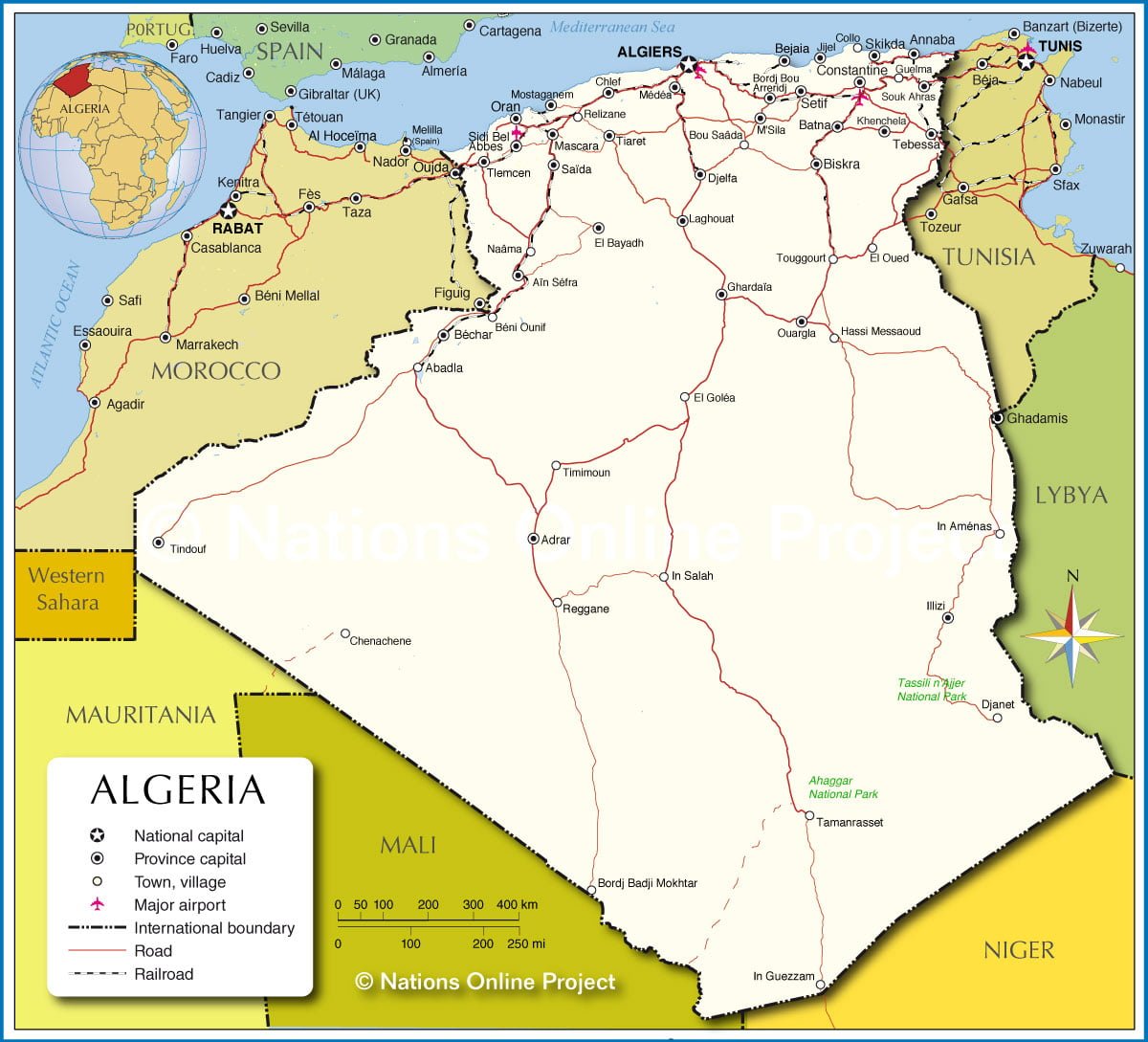
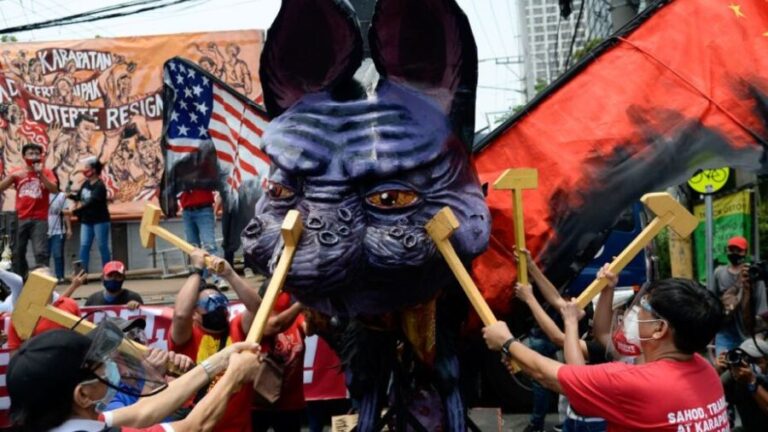
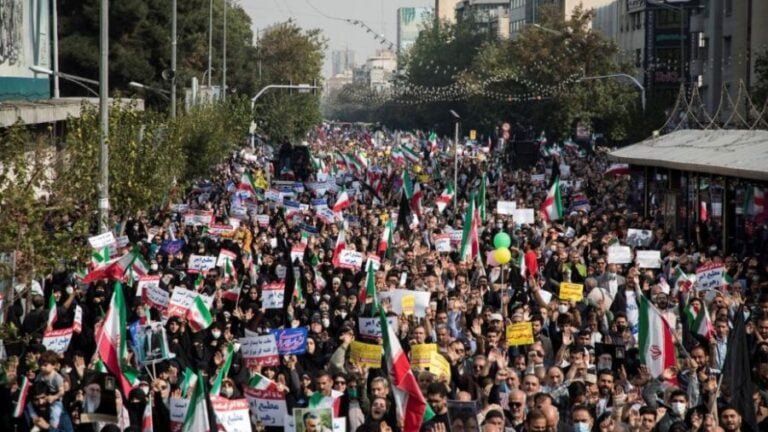
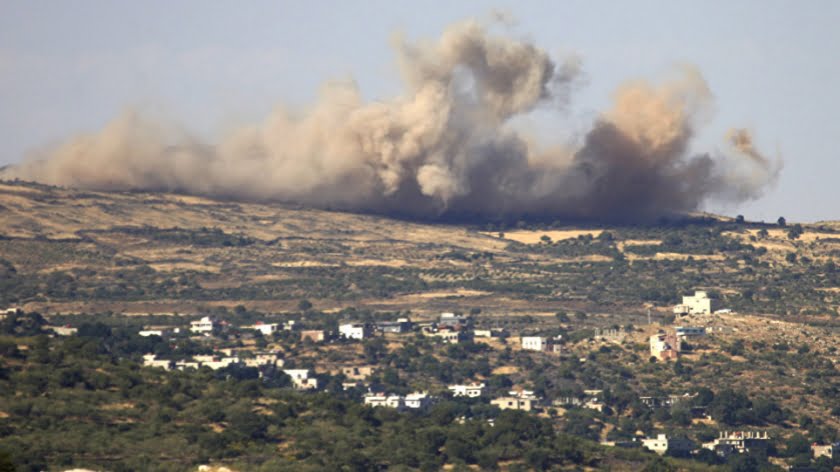
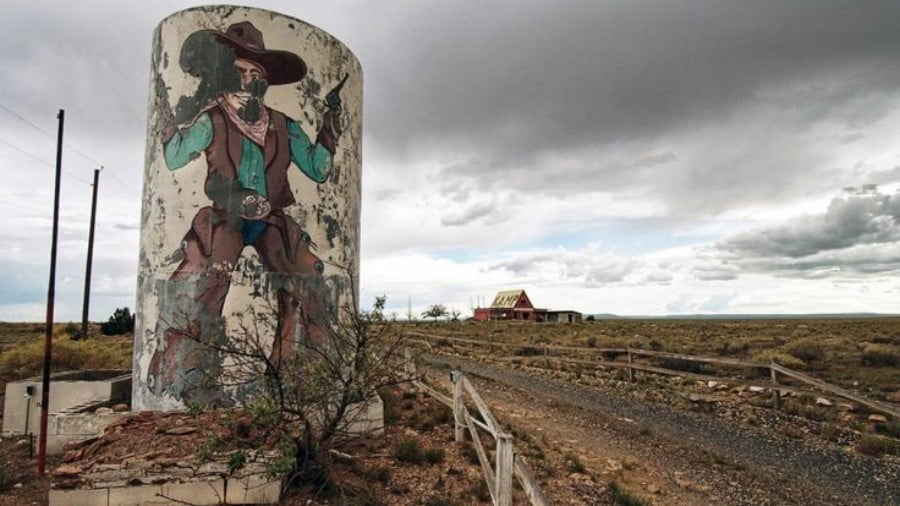
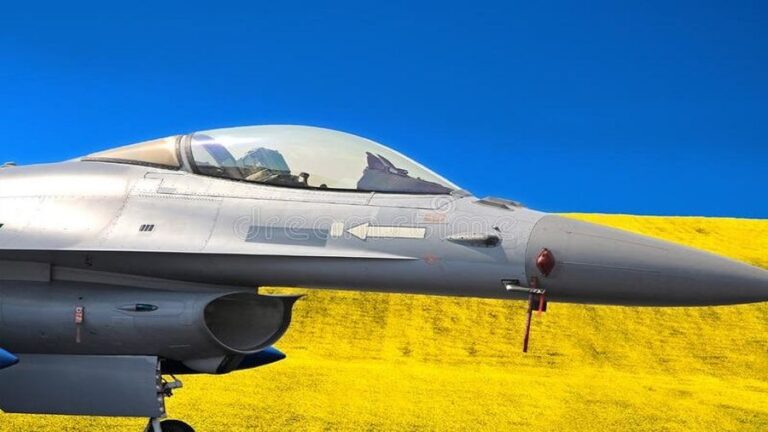
![Gaza protests against Bahrain delegation in Jerusalem [Mohammed Asad/Middle East Monitor]](https://astutenews.com/wp-content/uploads/2017/12/bahrain-delegation.jpg)